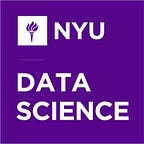Big Data, Big Questions: how does political conflict affect the economy?
Center for Data Science fellow Michael Gill presents his latest research
On Wednesday, Center for Data Science’s Moore-Sloan fellow Michael Gill showcased his research on how war and conflict impact the economy.
The US Department of Defense outsources most of its military equipment. According to the data gathered about the DoD’s business contracts, they purchase tanks, planes, weapons, and other gear from almost 350,000 businesses and multinational corporations. Since these expenditures account for almost 1% of the global GDP annually, it is unsurprising to assume that military events would affect the economy. But is it possible to be more specific about this correlation?
Using a Bayesian Structural Time Series model (BSTS), Gill is performing the first large-scale data analysis of the DoD’s contracts and corporate welfare to calculate the extent of military events on the economy. He focuses specifically on how revenue for military-related businesses fluctuated after three major — and unplanned — conflicts: 9/11, the troops’ surge in Afghanistan, and the death of Osama Bin Laden.
Part of the challenge with studies like these is managing our subjectivity when selecting data sets, defining variables, and singling out particular objects for analysis over others. For Gill, analyzing unplanned military events sharpens our insight on how conflict impacts the economy because the costs of planned military events are accounted for in the budget ahead of time.
Crucially, discovering how military conflicts impact the economy involves using big data to calculate what a company’s revenue would have been had the conflict not occurred, and then comparing the estimated revenue with the company’s actual revenue after the unplanned conflict.
Gill’s fascinating research shows that revenue rose after 9/11 and the troops’ surge for most businesses, but either stayed neutral or dipped after the death of Osama Bin Laden — showing how big data can help us understand how political, economic, and cultural systems interact and influence each other on a national or global scale.
by Cherrie Kwok
Originally published at cds.nyu.edu on October 6, 2016.
